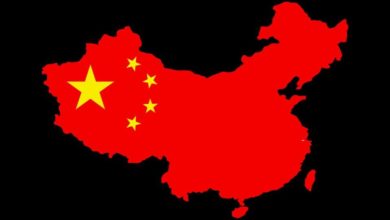العدالة نقطة تمفصل السياسة والأخلاق عند أرسطو
The justice is an articulation point of the Politics and Ethics at Aristotle

اعداد : أ.السنون عبد الفتاح، جامعة سيدي محمد عبد الله فأس- المغرب
- المركز الديمقراطي العربي –
-
مجلة العلوم الاجتماعية : العدد التاسع حزيران – يونيو 2019 ، وهي مجلة دولية محكمة تصدر عن المركز الديمقراطي العربي المانيا- برلين.”تعنى بنشر الدراسات والبحوث في ميدان العلوم الاجتماعية باللغات العربية والانجليزية والفرنسية.
للأطلاع على البحث “pdf” من خلال الرابط المرفق :-
ملخص:
ظل الفكر السياسي الكلاسيكي، إلى حدود ق16، يربط بين السياسة والأخلاق، وذلك لأنه كان يقوم على اعتقاد مفاده أن السياسة والأخلاق يبغيان تحقيق نفس الغاية وهي العدالة. ولما كانت هذه الغاية ترتبط بالمدينة ككل، أي بالمجتمع وليس بالأفراد، فإن أمر تحقيقها يتطلب من الساسة أو الحكام أن يكونوا أناسا فضلاء، يتمتعون بقدر عال من الأخلاق؛ لأن صعود العامة والديماغوجيين للحكم يؤدي إلى فساد الدولة، بحيث يصبح هدف الحكام خدمة مصالحهم الشخصية لا خدمة الشأن العام. إن الأمر، كما يقول أرسطو، لَأشبه بوضع سلاح في يد طفل صغير. وعلى ذلك، يجب ربط السياسة بالأخلاق عكس التصور الحديث الذي انطلق مع السياسي الإيطالي نيكولا ميكيافيللي، هذا الأخير الذي يرى أن الغاية من علم السياسة هي الحفاظ على السلطة بكل الوسائل، المشروعة وغير المشروعة، والحفاظ على وحدة الدولة وولاء المواطنين وحتى ولو تطلب الامر اعتماد أساليب غير عادلة ولا مشروعة، وبذلك فقد قام بالفصل بين الجانب السياسي والجانب الأخلاقي. وبناء عليه، فإن مقالنا هذا سيتركز حول محورين أساسيين، الأول سنتناول فيه الإشكالية التالية: ما هي علاقة الأخلاق بالسياسة، أهي علاقة اتصال أم انفصال؟ وإذا ما كانت علاقة اتصال، فأين تتجلى نقطة اتصالهما؟ وكيف يتم هذا الاتصال ؟ لكننا سنتناول في المحور الثاني الإشكالية التالية: ما هي العدالة؟ وهل هي واحدة أم متعددة ؟ وإذا ما كانت متعددة فما هي أنواعها؟ وما هي علاقاتها بالمساواة والإنصاف؟
Abstract:
The Classical Political Thinking, up to the 16th century, was linked to politics and morality, because it was based on the belief that politics and ethics were needed to achieve the same goal which is justice. Since this goal is related to the city as a whole, that is to society, not to individuals, the order to achieve it requires politicians or rulers to be virtuous people with a high moral standard. The rise of public and demagoguery leads to corruption of the state. Thus, the leaders become more concerned with their private interests rather than the common good. As Aristotle says, it is like putting a weapon in the hands of a small child. Therefore, the policy must be linked to ethics, contrary to the modern conception that began with the Italian politician Nikola Machiavelli. The latter believes that the purpose of political science is to preserve power by all means, legitimate or illegal, and to preserve the unity of the state and the loyalty of citizens. He thus separated the political and moral aspects. Accordingly, this article will focus on two main axes, the first which we will address is the following problematic: What is the relationship of ethics to politics, are they connected or separated? If they are connected, where is their point of contact? How is this contact? Also, in the second axis, we will address the following problematic: What is justice? Is it one or multiple? If they are multiple, what kinds are they? What are their relations with equality and equity?




